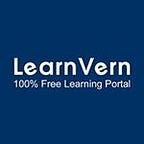C is considered to be the mother of all programming languages because several modern-day programming languages have been derived from C. Besides offering multiple functionalities, the C Programming language also is powerful enough to interact with hardware units and the kernel. Here is a quick guide on the basics and features of C programming to help you get a better understanding.
History of C
C was developed by Dennis Richie in a US lab and was originally designed to function as a system programming language to write an operating system. Since then, C has evolved over the years and taken on the status of one of the fundamentals that web programmers must know about.
Features of C Programming Language
With the growing need for skilled C language developers, several programmes are available both online and offline. Here is a quick guide on the fundamental features of C:
High-Level Programming Language
C is considered to be high-level programming language because of its flexibility, rich libraries and built-in features. It is powerful enough to develop system applications such as the drive and kernel. Also, the language is open to upgrades, which means it is as extensible as other high-level languages. The C language tutorial will give you an in-depth understanding of this feature.
Structured Language
C has a structured approach because of the use of functions. Functions reduce the code complexity and can be reused easily.
Rich Library
The development process is faster and more convenient with the C programming language. It has rich libraries, arithmetic and logic functions, etc. that are extremely useful in the development process. A hands-on C++ language tutorial will give you training in using these libraries to quickly develop powerful codes.
Dynamic Memory Management
C provides the best memory management that allows it to allocate and deallocate memory. Also, you will have the freedom to allocate memory dynamically using the correct functions.
Pointers
The pointers in C language allow a user to directly interact with memory. Besides memory, these pointers are used in functions, structure, stack, etc.
Datatypes in C
There are four types of data types:
Basic Datatypes: The most fundamental and primary data types fall into this category. For example, short — unsigned short, etc.
Derived Datatypes: Data types that use one or more data types in combination fall into the derived data types category. For example function data types, pointer types, structure types, etc. Enumeration Datatypes: These are used to declare an integral constant in C. Through this, developers can easily remember and maintain the integral constant.
Void Datatypes: This is an empty data type that is used as a return type for the functions that return no value in C.
You may enrol for a C++ tutorial for beginners to understand the theoretical and practical aspects of the subject.
Variables in C
A variable is the reserved memory space that stores the value of a specific data type. There are five types of variables:
Local Variables
When a variable is declared inside a code block or function and its role is confined to that block then it is known as a local variable.
Global Variables
When a variable is declared outside the code block or function and its role covers the entire program, it is called a global variable. A global variable also allows any function to change its value.
Static Variables
These variables are used with the keyword Static. They retain the declared value through the entire program. The value will not change even through multiple function calls.
Automatic Variables
These variables are declared through the function auto. You would be surprised to know that all the variables declared in the C language are automatic variables.
External Variables
These are declared by using the keyword extern. External variables allow you to share a variable in multiple C source files.
C is a multi-faceted, flexible and easy to use programming language. If you aspire to be a programmer or software developer then you can enrol for a C language tutorial or opt for a free C++ course!
